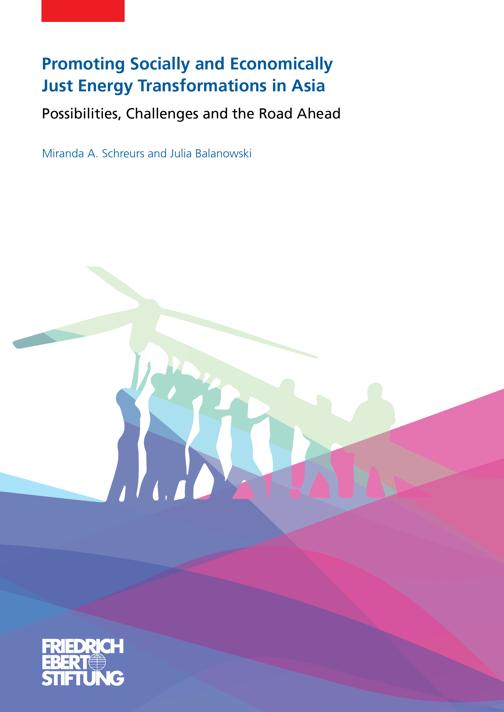Publikationen der StiftungPromoting socially and economically just energy transformations in Asia Titel
Titelaufnahme
- TitelPromoting socially and economically just energy transformations in Asia : possibilities, challenges and the road ahead
- Verfasser
- Körperschaft
- Erschienen
- Parallele Sprachausgabe
- UmfangIV, 27 Seiten
- AnmerkungLiteraturverzeichnis Seite 22-27
- SpracheEnglisch
- DokumenttypDruckschrift
- Schlagwörter (LOCAL)
- Schlagwörter
- Geografika
- URN
- Das Dokument ist frei verfügbar
- Nachweis
- Archiv
Tackling climate change is not possible without a significant contribution of Asia. Although Asian countries currently have relatively low levels of per capita greenhouse gas emissions, according to all economic forecasts this could change dramatically in the coming decades. At the same time, billions of people in many Asian countries will be affected by climate change. Health risks due to smog affect millions of Asians, and tremendous environmental pollution has resulted from coal mining or oil extraction in the region. Due to dropping prices of renewable energies and a global investment boom in the sector, an energy transition becomes financially attractive for many countries, it is hardly disputed today that an energy transition is now�financially and economically viable � and technically feasible. Although these insights are slowly gaining ground, the social and political feasibility of such turnabout remains a challenge in most countries. With a series of country studies from Asia, Friedrich-Ebert-Stiftung addresses the political and social factors that drive - but also hamper - socially just energy transitions. To this end, authors from China, India, Indonesia, Japan, Philippines, South-Korea, Thailand, and Vietnam worked together with Miranda Schreurs, professor for environmental and climate policy from the Technical University of Munich to provide an in-depth analysis of the situation in their respective countries. The meta study written by Miranda Schreurs and Julia Balanowski provides a comprehensive overview of the most important commonalities and differences across the eight countries.
